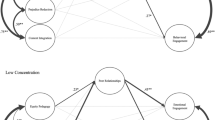Abstract
Israeli society is characterized by multilevel conflict in various domains of life. In an introductory course in Educational Anthropology offered in the School of Education at the University of Haifa, students were exposed to basic theoretical tenets of the field. The importance of openness and tolerance in inter-ethnic relations - stemming from cultural pluralism, cultural relativism and mediated via cross-cultural sensitization - was emphasized. The educational implications of these approaches were examined in terms of curriculum, classroom organization, teacher training, etc. Due to the fact that the course offered models of culture fair inter-group relations, one of the skills it was meant to develop was an ability to better deal with conflict. To assess the extent of skill development accomplished, students were assigned to draw up scenarios of conflict situations in an educational context based on cultural differences among the participants, analyze them and bring suggestions for their solution or prevention. The content analysis of the scenarios revealed differences in conflict resolution styles between Jewish and Arab students. The paper discusses the meaning, significance and implications of the two student groups' respective attitudes to this sensitive issue.
Similar content being viewed by others
References
Bateson, G. (1972). Steps to an Ecology of Mind. New York: Chandler Publishing Company.
Chetkow-Yanoov, B. (1987). Dealing with Conflict and Extremism. Jerusalem: Joint (JDC).
Cohen, Y. (1970). ‘Schools and civilizational states’, in Fischer, J. L. (ed.), The Social Sciences and the Comparative Study of Educational Systems. Scranton, PA: International Textbooks.
De Roche, C. and De Roche, J. (1990). ‘As I say, as I do: teaching reflexivity through a reflexive subject’, Anthropology and Education Quarterly 21 (2), 128–133.
Dobbert, M. L., Eisikovits, R. A., Pitman, M., Gamradt, J. K., and Chun, K. (1984). ‘Cultural transmission in three societies: testing a systems-based field guide’, Anthropology and Education Quarterly 15, (4), 275–311.
Eisikovits, R. A. and Adam, V. (1984). ‘Students' responses to paradigmatic change: an Israeli experiment in educational anthropology’, Higher Education 13, 89–112.
Hansen, J. F. (1979). Sociocultural Perspectives on Human Learning. Prospect Heights, Ill.: Waveland Press.
Malinowsky, B. (1944). A Scientific Theory of Culture and Other Essays. Chapell Hill, N.C.: University of North Carolina Press.
Mead, M. (1970). Culture and Commitment: The Study of the Generation Gap. New York: Garden City.
Read, M. (1968). Children of Their Fathers: Growing Up Among the Ngoni of Malawi. New York: Holt, Rinehart and Winston.
Spiro, M. E. (1966). ‘Buddhism and economic action in Burma’, American Anthropologist 68, 1163–1173.
Spradley, J. P. (ed.) (1972). Culture and Cognition. New York: Chandler Publishing Company.
Wolcott, H. (1974). ‘The teacher as an enemy’, in Spindler, G. (ed.), Education and Cultural Process, New York: Holt, Rinehart and Winston, pp. 411–425.
Author information
Authors and Affiliations
Rights and permissions
About this article
Cite this article
Eisikovits, R.A., Karnieli, M. Acquiring conflict resolution skills as cultural learning: an Israeli example. High Educ 23, 183–194 (1992). https://doi.org/10.1007/BF00143645
Issue Date:
DOI: https://doi.org/10.1007/BF00143645



